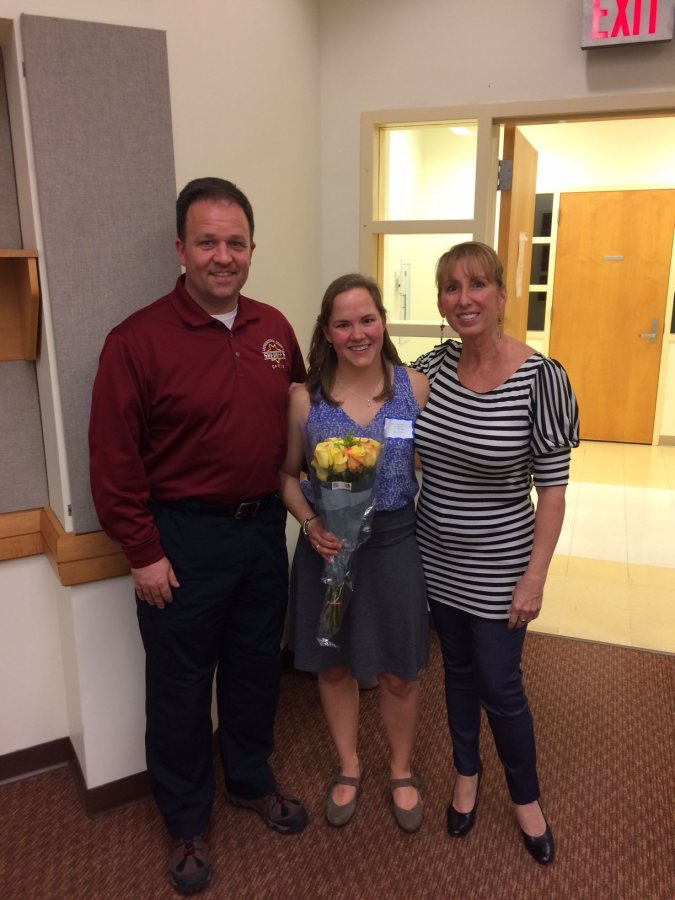Research Partnerships

Katie Stevenson ’17, poses with Androscoggin County Sheriff Eric Samson and Catherine Ryder, Executive Director of Tri-County Mental Health after presenting her Senior Honors Thesis at the Mt. David Summit. Katie worked with the Sheriff’s office and Tri-County Mental Health on a study of increasing rates of mental illness among individuals in the Androscoggin County Jail.
Do you have a mountain of data that you don’t have the time, tools, or personnel to analyze? Are you seeking explanations of trends in the community that are affecting your work and your ability to carry out your organizational mission? Do you want to develop a program or educational curriculum that would build understanding of a local issue of vital importance? If so, the Harward Center for Community Partnerships is eager to connect you with well-qualified Bates College seniors who can use their research abilities to benefit you and the community.
To fulfill their educational requirements at Bates, all seniors must complete a written thesis or capstone project that draws on the skills they have learned in their chosen major(s). These projects require at least a semester of in-depth research, with some students completing a year-long honors thesis. Some students choose to use their projects to address a need or research question identified by a community partner. Here are some examples of past community-engaged research projects undertaken by Bates seniors:
- Katie Stevenson, ’17, a Peace and Conflict Studies major, analyzed how cuts to Maine Care compensation for mental health services contributed to increasing incarceration of mentally ill individuals at the Androscoggin County Jail. [LINK]
- Camden Bock ’16, a Math major and Education minor, worked with the Lewiston Public School district to assess the effectiveness of a free, web-based math tutoring program. [LINK]
- Katrina Buchta ’16, a Sociology major, worked with Tree Street Youth to analyze barriers to college access for immigrant and refugee youth in Lewiston.
- Laurel Meyer ’16, a Psychology major, worked with two retirement homes in Lewiston, Blake Street Towers and Montello Heights, to evaluate how residents, staff, and physical spaces contributed to conceptualizations of community and independence. [LINK]
- Isobel Curtis ’17, an Environmental Studies major, evaluated the costs and benefits of sustainable energy options for Whiting Farm in Auburn.
We are eager to hear your ideas for potential projects, but we can offer particular strength in topics relating to environmental conservation; local agriculture and food systems; education; social inequality; public health; immigrant and refugee integration; and criminal justice reform. If you are interested in collaborating with Bates student researchers in one of these thematic areas, or in any others, we invite you to reach out to the Associate Director of Community-Engaged Learning and Research, Morgan Kinney.